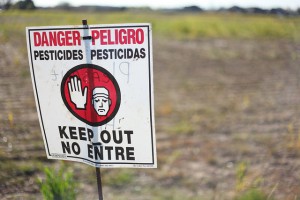Acetochlor and cancer risk
A study published in the International Journal of Cancer found that occupational exposure to acetochlor increased the risk of developing melanoma, pancreatic, lung, and colorectal cancer. Acetochlor is an herbicide typically applied to plant foliage. It was introduced in 1994 as an alternative to other herbicides such as metolachlor and atrazine that were known carcinogens. More recently however, the U.S. Environmental Protection Agency concluded that acetochlor was potentially carcinogenic based on laboratory experiments with animals. This study—conducted using data collected from the Agricultural Health Study which includes long-term data on the health of agricultural workers from North Carolina and Iowa—is one of the first to examine the relationship between exposure to acetochlor and human cancer risk. In it, 33,484 men provided information on their use of acetochlor and their health from 1999-2005 and then again in 2010-2011. Results suggest that exposure to acetochlor even at very low doses can increase the risk of lung cancer. Results also indicated that high-level exposure to acetochlor may be linked to an increased risk of colorectal cancer. Because this is the first study to assess the carcinogenic effects of acetochlor, further research is needed to definitively answer whether it should be classified as a carcinogenic herbicide.


